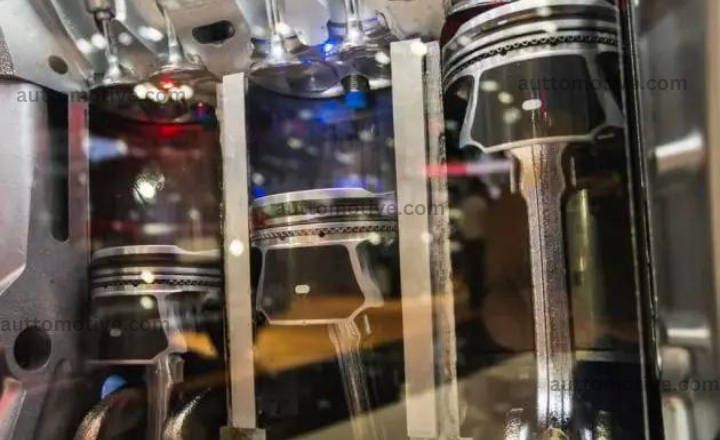Engine blocks are made of aluminum, and when they reach a certain temperature, the metal becomes brittle. This means that the engine block can break into smaller pieces if it is overheated. An engine block can get so hot that it can cause a fire.
To prevent this from happening, engine blocks are designed to reach a certain temperature. The manufacturers usually specify a temperature range in which the engine block is safe to operate. This guide will exactly guide you on how hot does an engine block get, so stay tuned.
How Hot Do Engines Get?
When it comes to engine performance and maintenance, understanding the temperature of an engine block is essential. An engine block is the main structure that houses all the other components of a car’s engine, including cylinders, pistons, and crankshaft. As such, it is exposed to high levels of heat generated by combustion.

An engine block can get as hot as 200-250 degrees fahrenheit (93-121 celsius) during normal operation. However, in extreme cases like racing or towing heavy loads for extended periods, the temperature can exceed this range by several degrees. This increase in heat can cause severe damage to the internal components of an engine if not managed properly.
To mitigate this risk and ensure optimal performance and longevity from your vehicle’s engine, it’s essential to monitor its temperature regularly using a digital thermometer or heat gun.
How Does the Engine Block Temperature Increase?
The engine block temperature is an important factor to consider when assessing the performance of your vehicle. The temperature rises due to a combination of factors, including the combustion process, friction between moving parts, and heat transfer from the coolant and oil. These processes are all necessary for your engine to operate but can also contribute to overheating if not properly managed.
The combustion process generates immense amounts of heat which cause the metal components in the engine block to expand. This expansion can lead to warping or cracking in extreme cases. Friction between moving parts such as pistons and cylinders causes even more heat buildup which must be dissipated by the cooling system. Coolant and oil help transfer some of this heat away from critical components such as bearings and seals which would quickly fail if exposed to excessive temperatures.
How Hot Does a Car Engine Get? – Exterior
The engine block is the heart of a vehicle’s engine. It holds and supports all other components, including the pistons, crankshaft, and camshaft. The operation of an engine generates heat, and this heat can cause damage to the engine block and other parts.
The temperature of the engine block’s exterior depends on some factors. One major is the type of material used in constructing the engine block. For example, cast iron blocks retain heat longer than aluminum or magnesium blocks. Engines with higher horsepower output produce more heat than those with lower power output.
It is crucial to keep track of how hot your vehicle’s engine block gets during operation. Overheating can lead to severe damage to vital components such as gaskets, bearings, and piston rings. Checking your coolant levels regularly can help prevent overheating issues that may arise from low coolant levels or leaks in hoses or radiators.
Here in this video, everything is explained about Block heater. Hope this will be beneficial for you.
How Hot Is The Engine Metal?
The temperature can vary greatly depending on the type of engine, its size, and how it is used. In general, an internal combustion engine generates a lot of heat during operation, which can cause metal parts to expand and contract rapidly.
For example, a typical car engine operates at temperatures ranging from 150 to 220 degrees Celsius while idling but can reach up to 600 degrees Celsius when running at full throttle. Similarly, aeroplane engines are designed to operate in extreme conditions with temperatures reaching as high as 1,500 degrees Celsius during takeoff.
The high operating temperatures of engines require them to be made from materials that can withstand such extreme conditions without melting or warping. And if you have ever wondered what is an engine block made of, the most common materials are aluminium alloys and titanium. These are commonly used for their strength and ability to dissipate heat quickly.
Engine Damage From Overheating
When an engine runs too hot, it can develop some serious problems. One of the most common issues is overheating which can lead to damage or failure of critical components such as the pistons, valves, and head. This happens when there is not enough coolant circulating through the engine to keep it cool.
When this occurs, the temperature inside the combustion chamber rises rapidly, causing metal parts to expand beyond their limit. If left unchecked, this can cause permanent damage to internal components like pistons and cylinder walls which will require costly repairs. Overheating can cause warping or cracking of the cylinder head which can result in a complete engine failure.
Here are some of the symptoms that indicates overheating of engine.
To prevent these issues from occurring in your vehicle’s engine system, regular maintenance is crucial. Ensuring that your cooling system is working properly by checking fluid levels and performing routine flushes will help keep temperatures low and avoid any potential problems down the road.
Final Words
Understanding how hot does an engine block get is important to maintain the proper operation of a vehicle and ensure its longevity. Hot engine blocks can cause serious damage, even leading to total failure, so it’s beneficial to know the optimal temperature range for your particular make and model. Regular maintenance, such as checking coolant levels and inspecting hoses, is essential for keeping your engine running at optimum temperatures.
FAQ’s
How do you know when the engine is overheated?
Several signs indicate when an engine is overheating. The most obvious sign is when the temperature gauge on the dashboard reads high. Other signs include white or blue smoke coming from the exhaust pipe, a sweet smell in the air, and steam coming from under the hood.
What are some common causes of engine overheating?
The most common causes are a lack of coolant, an issue with the cooling system, or a defective thermostat. A lack of coolant in the engine can cause it to overheat because there is not enough fluid to absorb the heat generated by the engine.
How can I prevent my engine from overheating?
The most important thing to do is to make sure that it is properly maintained. Start by checking the coolant level and making sure that it is at its recommended level. You should also pay attention to the condition of your cooling fan and make sure that it is functioning properly. Also, make sure to regularly check your vehicle’s oil level and change it according to your manufacturer’s recommendations.

